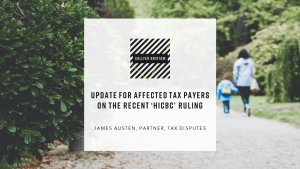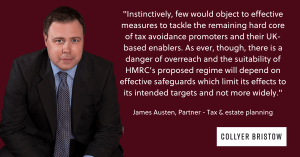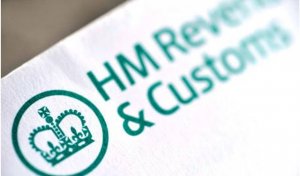- Tax disputes & investigations

Shorter Reads
Retrospective changes proposed to HMRC HICBC Discovery Assessment Powers
Concerningly, the Government is proposing to pass retrospective legislation to reverse the outcome of the Wilkes case so that even if we win in the Court of Appeal, other taxpayers will be unable to use the decision in their own cases.
2 minute read
Published 5 November 2021
Key information
- Specialisms
- Private Wealth
- Services
- Tax disputes & investigations
In the 2021 Budget, the Government published a little-noticed policy paper on Discovery Assessments in parallel with the Budget and Spending Review documents. See the paper here. The lack of attention was probably caused by the fact that the paper was not referred to elsewhere in the Budget documents, and because its release was restricted to being buried on HMRC’s website.
The policy paper was published by HMRC following our success (with Richard Vallat QC and Marika Lemos of Counsel) in representing taxpayer Jason Wilkes in the Upper Tribunal (HMRC v Wilkes [2021] UKUT 150 (TCC), the judgment is available here).
In summary, the policy paper states that the Government plans to change the law in the forthcoming Finance Bill so as to grant HMRC the discovery assessment powers that the Upper Tribunal in Wilkes determined it did not have. It sometimes happens that the Government changes the law after losing an important test case. However, what makes the proposed change in this case so significant is that the Government proposes to make the change retrospective. If the legislation is passed in the proposed form, it would mean that HICBC taxpayers who had been issued with a discovery assessment – and who could have taken the benefit of the Wilkes case – will be denied the opportunity to appeal. The limited exception to that general rule is that the 399 cases currently listed before the First-tier Tribunal (Tax Chamber) will be exempted from the retrospective action, meaning that the outcome of their cases will follow that of Wilkes.
Retrospective changes to tax law have to date been very rare. They are almost always controversial and contested and are usually reserved for the most egregious cases of tax avoidance, intended to protect significant tax revenues for the Exchequer. In this case, there was no tax avoidance and the taxpayers being penalised by this retrospective move were typically oblivious of their responsibilities. The Government’s desire to take retrospective action here arises only because of: (1) the policy decision by Government to introduce the Child Benefit claw-back using the tax system instead of the benefit system; and (2) the policy decision of HMRC to use Discovery Assessment powers that the Tribunals have found were not open to it. Moreover, the policy paper claims (implausibly) that the impact to the Exchequer will be “nil” – which raises the question as to why the change should be necessary at all.
This will be a most concerning development for taxpayers who were inadvertently caught in the HICBC net. It is also remarkable given that HMRC’s second appeal in the Wilkes case is still due to be heard shortly in the Court of Appeal.
We have prepared a detailed response to the Government’s policy paper here.
The Times will be running a story on this development on Saturday 6th November.
We intend to bring this development to the attention of MPs and peers and interested professional bodies as a matter of urgency. We anticipate that Parliament will be invited to amend the relevant clauses of the Finance Bill to remove the retrospective element of the proposed change, and we expect that the text of one or more amendments to assist parliamentarians will be prepared in support of that endeavour. We shall make further public statements shortly.
If necessary, we – together with Counsel – will consider the merits of bringing group Judicial Review proceedings in the High Court challenging the legality of this retrospective tax change. We will continue to keep affected taxpayers informed of developments in this regard.
Meanwhile, our preparations for the Court of Appeal hearing in Wilkes are continuing and are unaffected by this controversy. Pending the outcome of that hearing, our general advice remains that affected taxpayers should follow our notifications to remain up to date on developments. If that changes (for example, because of possible Judicial Review proceedings), we will publish further updates.
If you are affected by this issue and would like us to keep you informed, please subscribe to the HICBC mailing list (follow the link at the foot of this page or via our subscription form).
Please note that we are not able to offer pro-bono representation to other taxpayers at this stage and given the number of people affected, we are not able to give specific advice on people’s individual situation. This note is by way of general update only and does not constitute legal advice.
Read our response to the policy paper here.
Related content
Shorter Reads
Retrospective changes proposed to HMRC HICBC Discovery Assessment Powers
Concerningly, the Government is proposing to pass retrospective legislation to reverse the outcome of the Wilkes case so that even if we win in the Court of Appeal, other taxpayers will be unable to use the decision in their own cases.
Published 5 November 2021
Associated sectors / services
Authors
In the 2021 Budget, the Government published a little-noticed policy paper on Discovery Assessments in parallel with the Budget and Spending Review documents. See the paper here. The lack of attention was probably caused by the fact that the paper was not referred to elsewhere in the Budget documents, and because its release was restricted to being buried on HMRC’s website.
The policy paper was published by HMRC following our success (with Richard Vallat QC and Marika Lemos of Counsel) in representing taxpayer Jason Wilkes in the Upper Tribunal (HMRC v Wilkes [2021] UKUT 150 (TCC), the judgment is available here).
In summary, the policy paper states that the Government plans to change the law in the forthcoming Finance Bill so as to grant HMRC the discovery assessment powers that the Upper Tribunal in Wilkes determined it did not have. It sometimes happens that the Government changes the law after losing an important test case. However, what makes the proposed change in this case so significant is that the Government proposes to make the change retrospective. If the legislation is passed in the proposed form, it would mean that HICBC taxpayers who had been issued with a discovery assessment – and who could have taken the benefit of the Wilkes case – will be denied the opportunity to appeal. The limited exception to that general rule is that the 399 cases currently listed before the First-tier Tribunal (Tax Chamber) will be exempted from the retrospective action, meaning that the outcome of their cases will follow that of Wilkes.
Retrospective changes to tax law have to date been very rare. They are almost always controversial and contested and are usually reserved for the most egregious cases of tax avoidance, intended to protect significant tax revenues for the Exchequer. In this case, there was no tax avoidance and the taxpayers being penalised by this retrospective move were typically oblivious of their responsibilities. The Government’s desire to take retrospective action here arises only because of: (1) the policy decision by Government to introduce the Child Benefit claw-back using the tax system instead of the benefit system; and (2) the policy decision of HMRC to use Discovery Assessment powers that the Tribunals have found were not open to it. Moreover, the policy paper claims (implausibly) that the impact to the Exchequer will be “nil” – which raises the question as to why the change should be necessary at all.
This will be a most concerning development for taxpayers who were inadvertently caught in the HICBC net. It is also remarkable given that HMRC’s second appeal in the Wilkes case is still due to be heard shortly in the Court of Appeal.
We have prepared a detailed response to the Government’s policy paper here.
The Times will be running a story on this development on Saturday 6th November.
We intend to bring this development to the attention of MPs and peers and interested professional bodies as a matter of urgency. We anticipate that Parliament will be invited to amend the relevant clauses of the Finance Bill to remove the retrospective element of the proposed change, and we expect that the text of one or more amendments to assist parliamentarians will be prepared in support of that endeavour. We shall make further public statements shortly.
If necessary, we – together with Counsel – will consider the merits of bringing group Judicial Review proceedings in the High Court challenging the legality of this retrospective tax change. We will continue to keep affected taxpayers informed of developments in this regard.
Meanwhile, our preparations for the Court of Appeal hearing in Wilkes are continuing and are unaffected by this controversy. Pending the outcome of that hearing, our general advice remains that affected taxpayers should follow our notifications to remain up to date on developments. If that changes (for example, because of possible Judicial Review proceedings), we will publish further updates.
If you are affected by this issue and would like us to keep you informed, please subscribe to the HICBC mailing list (follow the link at the foot of this page or via our subscription form).
Please note that we are not able to offer pro-bono representation to other taxpayers at this stage and given the number of people affected, we are not able to give specific advice on people’s individual situation. This note is by way of general update only and does not constitute legal advice.
Read our response to the policy paper here.
Associated sectors / services
- Tax disputes & investigations
Authors
Need some more information? Make an enquiry below.
Subscribe
Please add your details and your areas of interest below
Article contributor
James
AustenPartner
Specialising in UK trusts, tax & estate planning, Private wealth, Tax disputes & investigations and Trusts & Inheritance disputes
Enjoy reading our articles? why not subscribe to notifications so you’ll never miss one?
Subscribe to our articlesMessage us on WhatsApp (calling not available)
Please note that Collyer Bristow provides this service during office hours for general information and enquiries only and that no legal or other professional advice will be provided over the WhatsApp platform. Please also note that if you choose to use this platform your personal data is likely to be processed outside the UK and EEA, including in the US. Appropriate legal or other professional opinion should be taken before taking or omitting to take any action in respect of any specific problem. Collyer Bristow LLP accepts no liability for any loss or damage which may arise from reliance on information provided. All information will be deleted immediately upon completion of a conversation.
Close









































